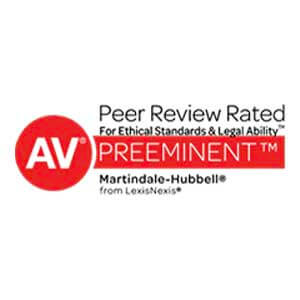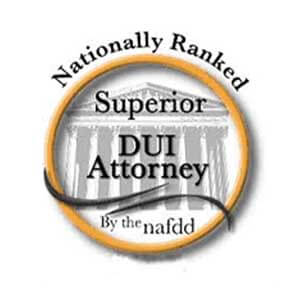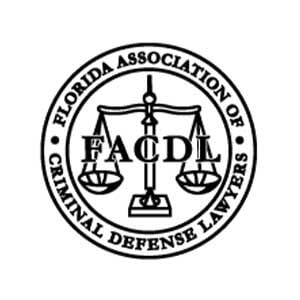Over 35 Years Of Collective Legal Experience
The stakes are high in federal cases. Penalties are often extreme, with little leeway allowed to federal judges in mitigating or suspending sentences. You need aggressive, experienced defense representation in the face of any formal or informal allegation of a federal offense.
Beckham Solis, Attorneys at Law, stands ready to defend your constitutional rights. Our Miami federal defense lawyers have over 35 years of combined legal experience, along with an unwavering passion for defending our clients’ rights in federal court. We know how to deal with federal agencies and prosecutors. We will not stop in our pursuit of a fair resolution to our clients’ cases, no matter their complexity or the severity of penalties.
To find out how we can defend your interests, call 305-564-4329.
Why Choose Beckham Solis, Attorneys at Law?
Distinguished reputation backed by numerous awards and recognitions
Comprehensive team approach that gives you the benefit of three accomplished attorneys
More than 35 years of combined experience on your side

Cases We Handle
Antitrust Violations ›
Asset Forfeiture ›
Conspiracy Cases ›
Cyberstalking ›
Domestic Violence ›
Drug Trafficking ›
International Crimes ›
State vs. Federal ›
Tax Violations ›
PPP Loan Fraud ›
Federal Law Vs. State Law
Federal laws are those enacted by congress or enumerated in the U.S. Constitution. State laws are passed by state legislators or are contained in the state constitution. Generally, there are many more state laws than federal laws because the latter are concerned mainly with national matters. In other words, an offense must cross state or foreign borders, violate constitutional rights, or occur on federal property for it to fall under federal jurisdiction.
In some cases, illegal conduct may be prohibited by both federal and state law. When this occurs, the alleged offender may be prosecuted by the state government, federal government, or both. Although the Fifth Amendment protects people from being tried for the same crime twice, this double jeopardy clause does not apply when both state and federal courts handle a case. That’s because the protection applies when the same sovereign prosecutes, but state and federal governments are considered separate sovereigns.
Federal laws are enforced by agencies such as the Federal Bureau of Investigation (FBI), the Drug Enforcement Agency (DEA), and the Secret Service. State laws are enforced by sheriffs or local police officers.
Generally, federal laws impose harsher penalties upon violators. But, for the most part, the severity of the punishments – whether levied by state or federal court – depends on the specifics of the offense.
Florida Statute Title XLVI And The United States Code
Behaviors considered criminal conduct are classified into various laws. As mentioned in the previous section, the Florida government and the federal government each have their own statutes outlining unlawful actions.
Florida’s criminal laws can be found in Title XLVI of the Florida Statutes. Contained within this title are crimes such as assault, battery, kidnapping, weapons, crimes, and prostitution. The state will prosecute any person who violates these laws.
The statutes concerning federal crimes are codified in the United States Code (U.S.C.). The U.S.C. is comprised of various titles, which are grouped by broad subjects. Many federal crimes are enumerated in Title 18 of the United States Code. This title concerns offenses such as arson, assault, embezzlement, and theft. Other types of crimes can be found in other titles. For example, the law concerning drug trafficking is under Title 21 (21 U.S.C. § 841), and the law concerning tax evasion is under Title 26 (26 U.S.C. § 7201). A violation of the laws in the United States Code triggers a federal investigation and prosecution.
Types Of Federal Crimes We Defend
Well over 100 offenses are considered federal crimes, falling under the jurisdiction of the federal government. These include violations of U.S. Code, Title 18: Crimes and Criminal Procedure and crimes committed on federal property, such as tax evasion, mortgage fraud, counterfeiting, antitrust violations, child pornography, drug trafficking, and many others.
We aggressively defend those accused of all types of federal crimes, including, but not limited to:
- Antitrust violations: Conduct such as price-fixing, bid-rigging, and monopolization may be considered a violation of antitrust laws. The conviction penalties are harsh and can include up to 3 years in federal prison and/or up to $350,000 in fines.
- Child pornography: Any person who possesses, transfers, or creates a depiction of a minor engaged in sexually explicit conduct may be prosecuted under the federal sexual exploitation of children law. For a first-time offender, the term of imprisonment ranges from 15 to 30 years.
- Counterfeiting: It’s unlawful for any person to make, possess, or use an official document or other instruments that are known to be faked or forged. The exact penalties a court can impose depend on the nature of the offense, with prison sentences ranging anywhere from five to 25 years.
- Drug trafficking: Under federal law, it’s illegal for any person to manufacture, distribute, or dispense a controlled or counterfeit substance. The length of the prison term and amount of fine depend on the type and quantity of the drug involved in the offense.
- Insider trading: If someone uses material, nonpublic information about a company to influence stock buying and/or selling decisions, they may be charged with this offense. Such conduct is a crime whether the “insider” used the data for their own gain or transferred it to another person for their use. The conviction penalties include up to 20 years in prison and/or a $5 million fine.
- Cyberstalking: This offense occurs when a person uses electronic communication with the intent to harm or harass another. The crime must affect interstate or foreign commerce, and the alleged victim must reasonably fear injury to themselves or others and suffer “substantial emotional distress.” A person convicted could face up to five years in prison. However, if aggravating factors are present, the penalty could be life imprisonment.
- Mortgage fraud: If a person knowingly misrepresents important information on mortgage loan documents, they could be charged with this crime. Several types of conduct are considered unlawful, such as inflating appraisals or purchasing a home on behalf of someone who cannot do so themselves. The offense is penalized by up to 30 years in prison and/or up to $1 million in fines.
- Tax evasion: The offense occurs when a person willfully fails to pay or underpays their tax obligations. This can be accomplished in several ways, such as by understating income or overstating deductions. Depending on the situation, a conviction can result in a maximum of five years in prison and/or a fine of up to $500,000.
Common Federal Crimes
Although the U.S. Government has hundreds of statutes prohibiting certain types of conduct, violations of some laws happen more frequently than others. In 2019, the U.S. Sentencing Commission (USSC) received 76,538 reports of a federal felony or Class A misdemeanor crimes.
Of those, 84.4% involved the following types of offenses:
- Immigration: Just over 38% of federal crimes were related to immigration violations. Most of the offenses involved unlawful reentry into the U.S., remaining in the U.S. illegally, and noncitizen smuggling.
- Drugs: Controlled substances offenses made up 26.6% of the total crimes reported to the USSC. The majority of violations involved the manufacture, sale, or transportation of a drug and drug possession. The most prevalent substances in all drug crimes were methamphetamine (42.2%), cocaine (17.9%), heroin (12.6%), and marijuana (8.6%).
- Firearms: The third most common crimes involved firearms, making up 11.1% of all cases. Specific offenses committed included unlawful receipt, possession, or transportation of firearms or ammunition, prohibited firearm or ammunition transactions, and possession of a firearm by a prohibited person, such as a felon.
- Fraud, theft, and embezzlement: Economic crimes made up 8.3% of the federal caseload. Many of the offenses involved theft, property destruction, or fraud.
The majority of federal crimes falling under immigration, drug, firearm, and economic violations has been a trend for the past 10 years.
Penalties For Federal Crimes
The penalties for a federal crime conviction depend on the offense the defendant was charged with and the nature of the crime. Generally, a court can impose a prison sentence and/or a fine. In many cases, there are mandatory minimum terms of imprisonment.
A few examples of federal crime conviction penalties include:
- Enticing a child to engage in sexually explicit conduct (18 U.S.C. § 2251):
- Between 15 and 30 years’ imprisonment
- A fine
- Possessing child pornography (18 U.S.C. § 2252):
- Up to 10 years’ imprisonment
- A fine
- Using a counterfeit federal obligation or security (18 U.S.C. § 472):
- Up to 20 years’ imprisonment
- A fine
- Trafficking in 1,000 kilograms or more of a mixture containing marijuana (21 U.S.C. § 841):
- Between 10 years’ and life imprisonment
- Up to $10,000,000 in fines
- Cyberstalking, where no death or serious bodily injury resulted (18 U.S.C. § 2261A):
- Up to five years’ imprisonment
- A fine
- Willfully evading tax obligations (26 U.S.C. § 7201):
- Up to five years’ imprisonment
- Up to $100,000 in fines
Federal Crimes And Your Right To Counsel
When a crime falls under the jurisdiction of the federal government, it is considered a federal crime. It will be investigated by a federal agency and prosecuted by the U.S. Attorney’s Office in federal court. With the FBI or ICE knocking down your door, it’s far too easy to be intimidated into forgoing immediate representation. You must act quickly.
If you are apprehended or arrested for a federal crime:
- You have the right to remain silent.
- You have the right to an attorney.
Exercise these rights, and you will have taken the first steps toward a future that is free from federal imprisonment and a record that could haunt you for the rest of your life.
The Importance Of Pre-File Investigations
Even if federal charges have not been formally filed against you – and even if you have not been arrested, there are steps you can take to protect yourself in the face of a federal investigation. Our attorneys handle pre-file investigations, where we examine federal investigations on behalf of our clients and gather enough evidence of our own that can persuade the U.S. Attorney’s Office to drop the case or pursue a lesser charge.
This proactive approach is essential in cases involving federal investigations that can last weeks, months, or even years, and involve complex evidence related to wiretaps, computer forensics, and surveillance. We have the resources and experience of our own to effectively address warrants and investigations well before any charges are filed.
Call Our Federal Crime Lawyers In Miami
Our Miami federal defense attorneys stand against federal agencies and prosecutors, protecting our clients’ interests in the face of federal charges and investigations. We understand federal proceedings and realize there is no one-size-fits-all approach to federal defense. We tailor our services and approach to meet each client’s needs and goals.
Understanding The Federal Court System
The U.S. federal court system is made up of three separate courts that have different functions concerning criminal cases. Not all federal criminal matters will be heard in each of the three courts. How a case progresses depends on its facts and outcomes.
The three types of federal courts and the matters they hear are as follows:
- District Courts: If a person is alleged to have violated a federal law, their case will begin in district court. U.S. district courts handle trials for federal criminal and civil cases.
- Circuit Courts: If a defendant is convicted, they can appeal the decision by filing a motion with a circuit court. When a person appeals a judgment, they ask a higher court to review the original trial record because they feel that a legal error substantially impacted the result of their case. Depending on what the circuit court judges find, they may either affirm the trial court’s decision (meaning they agree with it) or overturn it (meaning they feel that an error led to the conviction). Most often, when a judgment is overturned, it is sent back to the district court for another trial with the error corrected.
- U.S. Supreme Court: The U.S. Supreme Court is the highest court in America. If a circuit affirms a district court’s decision and the defendant still feels that their trial wasn’t fair, they can bring the matter to the U.S. Supreme Court. The court is not required to hear an appeal stemming from a circuit court’s decision. It has discretion in choosing which cases to take and generally only hears matters that will substantially impact federal law or answer a constitutional question.
Contact Beckham Solis, Attorneys at Law, at 305-564-4329 today for the experienced federal defense representation you need.
What You Should Know About Federal Charges
Federal criminal charges are much more severe than state-level charges, with much heavier penalties. If you are facing a federal crime, you probably have many questions about the accusations against you, the process and your future.
We can answer these for you. At Beckham Solis, Attorneys at Law, we offer high-quality counsel for a range of serious offenses. On this page, we have gotten you started by answering some of our clients’ frequently asked questions.
What qualifies as a federal crime?
When a crime breaks a law enacted by Florida’s legislature, it is a state offense. When it breaks a law enacted by the United States government, it is a federal offense.
Which federal crimes are punishable by death?
In Florida, several federal offenses qualify for the most serious punishment of all: death. Some of these crimes include:
- Sexual battery or attempted sexual battery with injury of a child under 12
- Trafficking in large quantities of a controlled substance
- Espionage
- Treason
- Authorizing or attempting the murder of an officer, juror or witness in a court case
- Death resulting from an aircraft hijacking
- Homicide
If you face one or more of these offenses, your very life is at stake. It is of utmost importance to have an attorney who can defend you from capital punishment in federal court.
Are there federal crimes without a statute of limitations?
Most federal felonies have a statute of limitations of five years. After five years from the date of the crime, the federal government cannot prosecute you for it. Several charges do not have statutes of limitations, though. For instance, capital crimes and sex crimes against minors do not have any statutes of limitations.
Which federal crimes are felonies?
There are state-level felonies and federal-level felonies. Federal felonies are some of the most harshly punished crimes, even if they do not result in the death penalty. Some examples of federal felonies include:
- Drug trafficking
- Firearms offenses
- Bank robbery
- Sexual assault
- Manslaughter
- Fraud and other white collar crimes
If you are wondering whether the charge against you is a federal felony or are wondering why a certain offense counts as a federal felony, we can explain for you.
Where are federal crimes tried?
Federal criminal trials do not occur at most local courthouses. Instead, they go to a federal court. Florida has three federal courts:
- S. District Court for the Northern District
- S. District Court for the Middle District
- S. District Court for the Southern District
The jurisdiction for crimes committed in the Miami-Dade metro area is the Southern District.
Can federal crimes be prosecuted in state courts?
No. States do not have jurisdiction over federal charges. All federal crimes must go to federal court unless your attorney manages to get the charges against you reduced to a state offense.
Are federal crimes public record?
Yes. If you are arrested, charged or convicted of a federal crime, anyone who looks into your criminal record will see it. This includes employers, romantic partners, creditors, landlords and more. You must have a crime expunged – otherwise known as sealed – to remove it from public view.
Learn More From Us About Federal Charges
The law is very complex when it comes to federal crimes. You probably have more questions than the ones we answered here. To ask your questions to one of our lawyers, call or email us to schedule an initial consultation. We have the knowledge to give the answers you need. To make your consultation, call 305-564-4329 or send us an email.
More than 3,000 DUI and 5,000 Criminal Defense Cases Dismissed
Hear From Our
Satisfied Clients

They made my life easier and everything went smoothly!
"Thanks to Justin Beckham and Helmuth Solis for always being there whenever I needed Assistance with my case. They made my life easier and everything went smoothly! Best lawyers in Miami! I would definitely recommend them any time."









